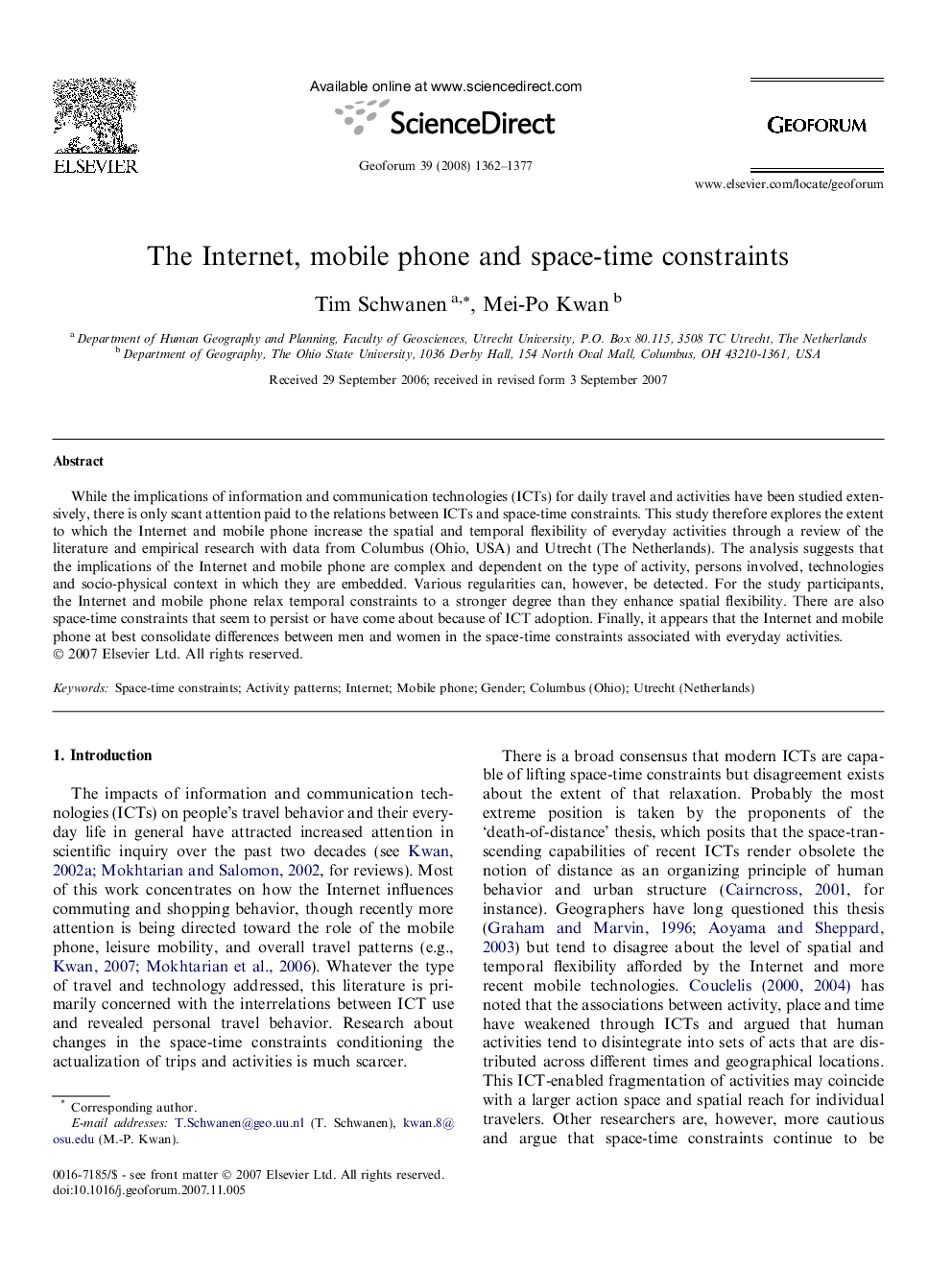| Article ID | Journal | Published Year | Pages | File Type |
|---|---|---|---|---|
| 5075129 | Geoforum | 2008 | 16 Pages |
Abstract
While the implications of information and communication technologies (ICTs) for daily travel and activities have been studied extensively, there is only scant attention paid to the relations between ICTs and space-time constraints. This study therefore explores the extent to which the Internet and mobile phone increase the spatial and temporal flexibility of everyday activities through a review of the literature and empirical research with data from Columbus (Ohio, USA) and Utrecht (The Netherlands). The analysis suggests that the implications of the Internet and mobile phone are complex and dependent on the type of activity, persons involved, technologies and socio-physical context in which they are embedded. Various regularities can, however, be detected. For the study participants, the Internet and mobile phone relax temporal constraints to a stronger degree than they enhance spatial flexibility. There are also space-time constraints that seem to persist or have come about because of ICT adoption. Finally, it appears that the Internet and mobile phone at best consolidate differences between men and women in the space-time constraints associated with everyday activities.
Related Topics
Social Sciences and Humanities
Economics, Econometrics and Finance
Economics and Econometrics
Authors
Tim Schwanen, Mei-Po Kwan,
